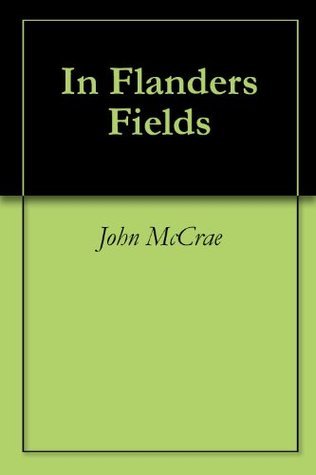What do you think?
Rate this book


1 pages, Kindle Edition
First published October 22, 2015

Supposedly, the original version of this moving poem had "grow" rather than "blow" for the poppies. I think I prefer this, but either way this rondeau written for a fallen friend is extremely moving. McCrae died of pneumonia near the end of the war.
Lest we forget.
https://wordpress.com/view/carolshess...